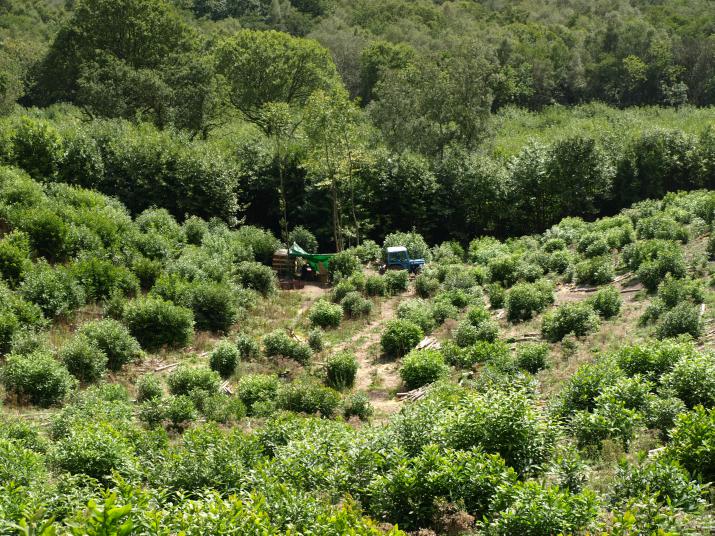
1) What is your job title/ who is your employer?
I’m Principal Lecturer and Programme Leader for the CIEEM Accredited MSc in Environmental Conservation
2) What is your typical working day/ week?
A very difficult question! When I am teaching, which is about three days a week, I’ll get into the office by 8.30 and teaching tends to be in three hour blocks. The rest of the time tends to be taken up with seeing students for tutorials, general support or supervising their research projects. I’m technically employed just four days a week, with the remaining day available for my own consultancy. However, like most part-time workers, I almost always work more as its impossible to get marking, emails and admin, let alone my own research done in the scheduled time. I have various projects some of which involve meetings in Europe and beyond and these have to be fitted around teaching commitments so, for example, I spent Christmas in India with a group of MSc students looking at landscape character assessment and ecosystem services.
3) What jobs and experience have led you to your present position?
I’m a Chartered Landscape Architect (Management) and a Fellow of the Chartered Institute of Ecology and Environmental Management. I completed the Landscape Ecology Design and Management MSc at Wye College, University of London, at the beginning of the 1990s, when my children were at Primary school and went on to work in the Landscape Department of Kent County Council. I was rapidly transferred over to the Planning Department to work on coastal management and later funded by the Forestry Commission as County Woodland Officer, which involved industry development and managing EU projects. When KCC ‘sold’ all Landscape staff to Babtie I decided to go back to being self-employed, continuing to work for the Forestry Commission, he Woodland Trust and various local authorities as well as the Countryside Agency (now known as Natural England). I had taught final year undergraduates part-time since completing my own MSc and was asked to teach Landscape Assessment for the University of Greenwich in the early 2000s. This quickly expanded to teaching first one whole day a week, then two and now four.
4) What are the benefits of having cross-over skills? Are there any negatives / issues?
For me it is vital to have both the landscape and ecology backgrounds and I also have horticultural qualifications. It is particularly valuable when working on collaborative projects, such as EuroCoppice, for which I am the UK lead, and overseas. The disadvantage is that I don’t fit neatly into any specific research grouping in the Faculty. I am involved in both the biology and the ecosystem services research clusters. I would argue that I have a much more interesting time than many academics and my background and active network of contacts in the real world are hugely beneficial to my students.
5) As a member of ialeUK, how do you see the discipline of landscape ecology progressing?
It is integral to the land-use planning system although this is not always recognised – it is implicit rather than explicit. It should have a higher profile in the development of policy at regional, national and international level. There is a tendency for landscape ecology to be considered only relevant to nature conservation, whereas it is fundamental to wider issues, for example the socio-economics of farming and forestry (my specific research interests).
6) Where do you see landscape ecology fitting into professional practise? Is it a bridge between landscape and ecology or does it require a different set of skills?
I see it as having a far wider reach and would argue that landscape ecology requires both social skills, for example to design and implement participatory landscape assessment, as well as an understanding of economics, particularly relating to the land based sector. As no one can have all these skills it is vital for landscape ecologists to work effectively in teams – although group based assignments remain the most unpopular with my MSc students!